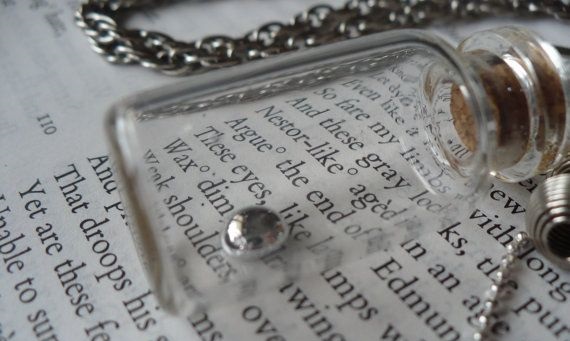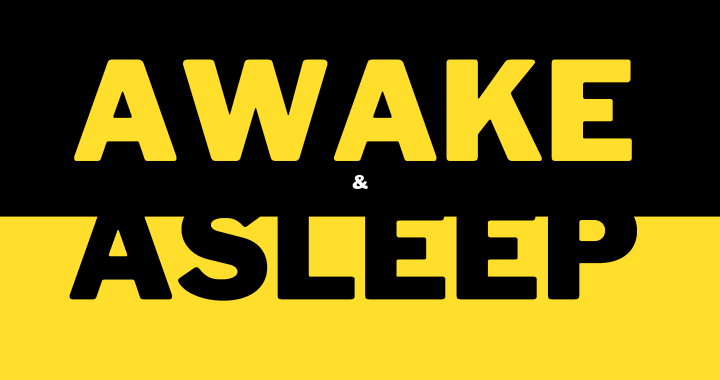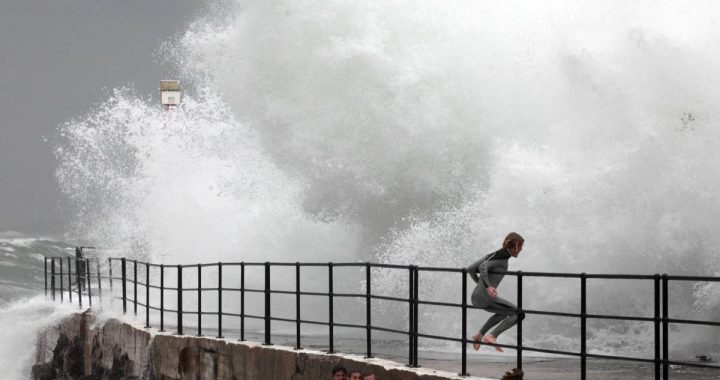Sound that breaks is noise, sound that moves is music.
And from where he stood, Ilya Nikolayevich could almost hear the hum of a ship’s haul in the distance. It cut right across the line where ocean meets the sky, the horizon. He wished for the silence necessary to tune in. But from everywhere around him there grew a vague white noise capable of endless distraction.
He could not escape it: the diversion, the clamoring, the calls to action, the advertisements, the updates, the noise . . .
. . . clouding the necessary silence. Luckily, he knew how to tame the noise. After all, he was a DJ. To dance between sound and silence, that is to groove, was his gift, his destiny.
Gangly and chest pale, today he had paused to stand low under the light of the sun, letting himself burn for a minute, at the wooden rail of a long boardwalk connecting two beaches. Aside from needing the tan, after weeks of being sick, he was scouting for the optimal spot to position his music gear and perform a set of original tracks. His stack of amps and keyboards were packed on a dolly, held tight by bungee cords.
Meanwhile, a wave crashed on shore, foam and vibes. Gulls cawed overhead, mated. Families ambled. Ilya coughed.
For the past two Sundays he had performed like this, run and gun, at the beach. Usually he played somewhere in the city, some place to which he never returned. But he liked the beach. Last week, he got a couple to make out. This week, he wanted to do it again. But together with his girlfriend, a blues guitarist, who was supposed to arrive any minute.
A message came in, making his phone buzz. He didn’t catch it, walked instead.
At a nice spot on the wooden boardwalk, between Brighton Beach and Coney Island, he could faintly hear roller coasters, children wailing, and count crushed cans on the ground, next to a pile of broken syringes and baby wipes in a nearby bush. The scene, though ideal for a performance given the amount of foot traffic, nevertheless reminded him that no matter how good you are there is always the chance to embarrass yourself, on top of the fact that he was a recovering pill addict, the need for a fix mixing dangerously with his environment. He shivered until he coughed, rubbing his forehead as if someone had just thrown a red brick at his face, only the blood was sweat. He coughed again, on this cool June day, suffering a fever.
Through the pain and anxiety, Ilya redid a shirt button which the breeze had undone, all the while unwrapping the bungee cord securing his equipment, with ceremony.
Before even finishing to set up, a crowd formed around him. They wanted a show. Where is she, thought Ilya, switching on his generator. Fire, he searched for inner fire. Honey, he produced a honey the worker bees of this busy hive called New York City could suckle at. Look at them buzz, thought Ilya, looking up to wipe the streams of sweat like blood from his brow, turning his attention towards some cables and uncoiling them. But another coughing fit attacked him midway. Embarrassment finally sunk in, as the audience pulled their phones out. His chest stayed pale, his arms sunburned, so gangly. Suddenly on his lip sprouted a cold sore and another terrible cough along with it. Where is she?
His phone buzzed a second time. This time he noticed it wasn’t the notification he wanted, neither was the last message. Another breeze rolled in. He unrolled more cable. The phone buzzed a third time, though again, nothing special. He put on a headband to stop the sweating.
A young couple stopped their walk to join the crowd. They smiled like willows, gently and patiently. Yet a fourth text came in, but again not from the one he wanted, his queen bee, who was supposed to come with her guitar and camera.
No more cough syrup, ibuprofen, no more percs, no more molly, where is Stacy? He had asked her to meet. She had asked him to quit drugs.
But because he had failed, so would she. He didn’t know she would catch him just that very day, when he needed her to come to the beach to perform with him. He sent her a message, confirming that he was at the beach, waiting for her, about to play.
Not a second later, Ilya punched in a bassline, then a high-hat sample. The show had begun.
☿
Beaches and house music go together like beaches and house music.
Deeply, Ilya added dark tracks to a mix designed to shake palm trees and bikini bottoms. Feelers only he could sustain, with such an infectious style, on a family boardwalk no less. And here he was, rolling and scratching on apps and tables, kicking his heel into hell, hand on earphone on ear. Few greater pleasures were there than to click a sample into syncopation with the established beat of a governing rhythm. The snaps and finger claps, the slaps and fist bumps they produced. To feel it was great, to dance even better, but to make it so grand.
That Sunday at the beach, at Ilya’s hit and run set, there was magic. Even the wind swung to his music and lured people in. The grass in the sand swayed, too. A dog even hopped on its hind legs. Kids flossed. His mic got passed around for shout-outs. And the beat it spiraled. Salt, sea, timeless love. Fame, good times, the sparks. Reflecting on life, embracing existence. Here the boards of the boardwalk provided springs to the feet of passersby. Some people littered too, but only elsewhere, nowhere near the music. Where was Stacy?
Now it could be said and seen that his sweat and shaking were the result of his zesty self-induced trance for the music, but in reality he had slept very little the night before, was sober, withdrawing, and possessed by an inner awkwardness of spirit, which only enthusiasm could mask. Jerking some, a dash of spit and spasm here and there, he did lose some pain and gained strength, health, the power to move on. His music was healing him, and making those around him pour water bottle water over their heads and shaking their long, wet strands of hair. The beat was there. The beach provided a cure. A bigger group soon encircled the DJ, enjoyed his music as much as the nature surrounding them did. Everyone and everything danced.
Until that fateful message that would break him broke him bad, lighting up his screen.
Normally, he wouldn’t touch his phone during a set, but, because he had been waiting since the day before for her confirmation, he peeked at the preview:
Stacy Giacometti
2:34
Sorry, Ilya, I just can’t . . .
The rest lay a swipe away. Ilya, with his thumb to the screen, coughed, chest tighter than a clump of sand. A goofy sample of disco trombones looped, as he continued to star at the preview. Because of the looping, the dancing crowd, even the dog, slowed down, perplexed at their distracted DJ. They were waiting for the next track, which would not load unless pressed, until the looping horns went away, stopped rusting.
Sorry, Ilya, I just can’t believe you had me get equipment from your place. Would I not look in the drawer? And don’t say they are your roommate’s, they have your name on them. Clearly you have made your choice. Don’t expect me to come play with you I can’t even picture us right now without hurting . . . [read more.]
Ilya clicked “read more,” and more there was. She talked about having found Ilya’s renewed prescription pills, which he had promised to quit. She knew getting them renewed was easy. The chance to relapse, and their ongoing fight, was just too high; plus, most shocking of all, she was confessing over messenger that after seeing his apartment that morning she realized, you know, forget the beach, deciding instead to go sign that major record label offer which she previously had been denying. Her now new agent was more than willing to meet at a café with a printed contract.
During this bombardment of texts, all Ilya could wonder was why it hadn’t occurred to him to throw away his medication, or else hide it better, before his girlfriend went to his place to pick up her guitar. With a little more context, he would have realized she was finally breaking free, living her dream, while he was cast into a nightmare.
His heart rate spiked. As he reread her message a third time—by now losing all the energy from the crowd—there appeared those jumping ellipses that indicated she was typing again. The typing indicator appeared and reappeared, indicating thought, pauses, deletes. Overhead the sky turned dark. A nearby biker wondered if it was going to rain, chugging from a water bottle and chugging it at a recycling bin, but failing to land it. The biker rode on.
The new message entered.
A helicopter roared above.
Miles away, the boat on the line of the horizon remained as distant as it did a memory.
All focus fit in the palm of Ilya’s hand, as he saw the new message the length of a novel, weighing him down line by line, describing without any restraint the extent to which he had ruined Stacy’s life, without his trust, and how terribly wrong it might be to reopen wounds by getting back together again, a fourth time.
Ilya locked his phone screen and looked up at the light of the sun. The rays, which he couldn’t look at directly, seemed raised like arms suggesting they also didn’t have a clue of what to say.
The DJ should have replied with an honest apology, could have at least pretended to be hurt, but it would have meant nothing to Stacy. Because just then, she wrote: It’s too late, never mind. It’s too late.
For a moment, an image of her came to mind, of peach fuzz and running makeup, not of how she was now, but two years before, when they first got back together from their first breakup, back in college. Now, that image didn’t produce the same feelings, only a bitterness, of repeated mistakes. She wasn’t beautiful anymore to him, no, only hot. Worse, as this image burned like film in a projector’s light, another soon replaced it. Then after that image, another, then another. One of her at an ice cream shop, spilling milkshake all over herself, after a show. One of her licking her way up each note of her guitar fretboard, until her mouth reached the turning knobs, which she gently took into her mouth, and tuned with her front teeth. Another, his favorite of Stacy Giacometti, on his couch covered in crumpled music sheets and crushed soda cans, wearing nothing but jean-overall, the left button missing, a number two pencil in her mouth, and hair knotted after sex, as she composed what would become her first hit blues single to play on the air. A single that he had recorded, actually, which became the b-side of a limited edition release by an indie press, which attracted major label attention. She had enough music, and talent, and now this breakup and drama, to rerecord her songs and even write some new material for a full on, glossy, cellophane, marketed 45-minutes of real human pain and longing, in three chords, for mass-consumption.
There she was, typing again, those jumping ellipses. Meanwhile, at the beach, loopy loops kind of looped, playing plays played halfheartedly, to no one at all really, because no one was listening, or sticking around, except virtually, his now new ex.
After wiping his face, he pressed hers on his phone, then hit the green call button.
☿
“You have to fight.” There were his father’s words, when Ilya chose the path. It is great advice when you’re creating art, but terrible when you are breaking up.
Against all desire, all rules, against the nonexistent crowd, he turned the master volume knob down on the boring looping music. And put his phone to his ear.
“You want me to quit?” Ilya fumed. “I quit!”
There was a pause, then a crackle of a voice.
“It’s too late, Ilya. Your bullshit got to me this time.” Stacy hung up.
Ilya could only imagine her at some café, not more than an hour away somewhere, at a table, alone, being asked what’s wrong, and saying, Nothing, in an odd cold way, as two tears broke from one eye, and a forced smile crossed her face, before handwriting her signature on whatever contract was being put in front of her, without really reading it at all.
They were over. Ilya thought about how at the age of 22 he was becoming a washed up loser, a Diplo to Stacy’s MIA, a terrible EDM break up story among many dozens of terrible music break up stories.
Instead of turning off his phone and continuing the set, which is what any sensible DJ would have done, he didn’t even touch the gear, so he could text her back. Meanwhile other notifications piled in, ones he didn’t care about. He swatted them away, rereading her messages and replying to them directly one at a time, trembling in flu and misery. How could he lie his way out of this one? He really hadn’t taken any pills since their last fight last week. But then, why hadn’t he thrown them away? To sell them, he wrote her.
The sun above undressed. The beach became blistering. Boys played with water guns. Girls spun hula-hoops. Then they mixed. Drinks, too, were mixed, next served and drunk. Then, people too, and so on.
No response. So he called again. But it went straight to voicemail. He called again. Again nothing.
That’s when she blocked him, deleted him. And in retaliation, he unfriended her, unfollowed. Her death was complete. His sorrow unreal.
The same shirt button came undone, and a breeze caressed him. One could see the pink scar that ran up Ilya’s chest: from his heart to his left ear. A grisly thing that marked a certain night in Paris a year before. Over the scar hung a vial of mercury, for protection. Not unrelated.
But blocked, totally blocked. Ilya would rather be anywhere but here, nothing felt right, nothing comfortable. And it didn’t help that he had a raging headache, water everywhere, but none to drink, hadn’t eaten in days, save for yogurt, an apple, no liquids except alcohol. He ought to have quit drinking too, because now? A pounding chest, a throbbing pain, literally throbbing in the most abject places: his eye lids throbbed, his scrotum, a muscle in the middle part of his back by his spine. His head hurt so much that his teeth and nails ached. He should tear off a nail and bite down on the fleshy inside of his fingertip. They want vulnerability? he thought. Here it is. Take a photo of this.
Ilya pressed his phone between his thumb and achy finger. He turned at the heel, and tossed. His phone went soaring over the beach, past rocks and shore, for a belly flop into the ocean, which devoured the device, then forgot about it.
A warm wave came over Ilya. A weight had been lifted. His arms raised in victory.
“Ahem.”
A pair of interracial, inter-gender cops stood arms-folded close to the DJ.
Ilya grinned guilty, rubbing the back of his buzz-cut head.
The lady copy nodded over to the water. Ilya went after his phone.
He was barefooted, taking his time. If he moved any faster he would collapse. The light brightly burned, painted pale the waves in the water, the boat out in the distance still cutting across an ocean unfrozen by time, marking the minutes, Ilya’s toes digging into seashells and shards of glass, felt nice, looked good, in the water. His ankles touched the cold, so unlike June, then his knees, where the phone was, he bent.
Only to pull up like an onion from its root a broken phone.
The day finally got to him. He turned up one last time, saw clouds part, and let a smile cross his face. The world turned rainbow-white, as he himself fell, fell . . .
. . . backwards, flat on his back into the water, to cause, as an artist, a literal splash, waves fanning out. Wherefore from above, one could see sunk around his neck the small chain necklace and glint of light on his vial of mercury.
☿




